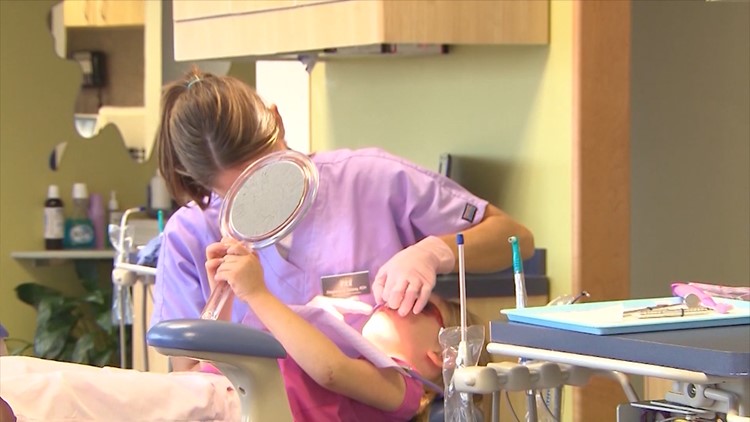Statistics show that by three years of age, as many as 30 percent of children have had tooth decay. Parents might think that the consequences will be minimal if their kids experience decay on their “baby teeth”, because they’re only temporary. But, the damage can be permanent.
Decay in children’s teeth can impact the development of their adult teeth as well, and this is a global issue. According to a study published by the Journal of Oral Hygiene & Health, over 90% of decayed teeth were left untreated in children ages 5 and younger.. If they have to have a baby tooth pulled, it can no longer hold the place for the forming adult tooth, which sometimes can come as late as 12 years old. In some cases, cavities can infect the tissue of a baby tooth and spread to the adult tooth.
But, why aren’t all parents proactive about taking their children to the dentist?
We stopped by the office of Dr. Roy H McCray, who owns a general dentistry right here in Huntsville. He says that when it comes to oral health there’s one important thing to remember, regardless of your age:
Dr. McCray says that children have to be taught not to just brush for the sake of brushing, but shown how to “brush to clean”. He reminds his patients that “The mouth is the widest opening on the human body, if you take care of it, it will take care of you.”
His daughter, Roya McCray, works alongside him and says it’s important for parents to bring their kids into the dentist and continue healthy habits once they get home.
“When it comes to children, you want to introduce them to these things early and not be terrified of that, because when you start them off from an early age, their developing and they’re sponges… whatever they see an adult doing they will reenact that.”
Parents might just be misinformed. According to a study by Unum, More than half of parents (56 percent) believe a child should first visit the dentist after age 2, but medical specialists say that children should actually make their first trip when their first tooth fully emerges.



